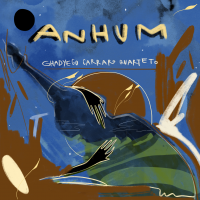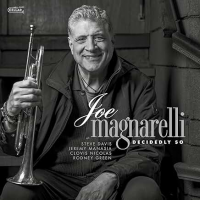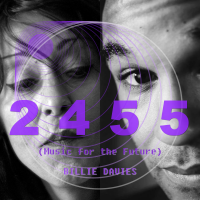Home » Jazz Articles » Album Review » Miroslav Tadic: Mirina
Miroslav Tadic: Mirina
It was many years ago when Tadic's reputation exploded wide and deep when he joined hands with another guitar extraordinaire, Vlatko Stefanovski, for a project that took Macedonian folk music to a different plateau. That project introduced him to the people in the Balkans thus spawning interesting collaborations that saw him further mining the region's cultural heritage. But his musical vision stretches even further across a vast horizon with Mirina, his first solo guitar album since Window Mirror (MA Recordings, 2000). Mirina showcases a variety of expansive concepts and songs that manage to work together seamlessly. Here, Tadic does everything by himself except for the catering. In a local Croatian dialect, the word mirina, denotes an old stony house that can be seen all along the Croatian coastline of the Adriatic sea. This record is a casually paced, evocatively arranged work of art that collects various songs, mostly by Croatian composer and songwriter Arsen Dedic, traditional Dalmatian songs, including a Macedonian folk song and a pop song.
The album's elegant tracks are deeply atmospheric, exploring different realms where it seems that some sort of Mediterranean melancholy is a unifying thread that joins together these various songs. From the first sounds of "Dida Moj" (or "My Granddad") it feels like the sun has arisen and its warmth awashes even though the original song by Arsen Dedic is mournful and soaked up in sadness. Dedic is one of the most beloved composers and songwriters in that part of the world and melody reigns supreme in his works. He is in the same rank as composer/songwriter Antonio Carlos Jobim or songwriter Leonard Cohen, someone whose songs are covered by different generations of musicians. And this is not the first time that Tadic has covered some of his songs as he did that on his duet record with actor/singer Rade Serbedzija Imam Pjesmu za Tebe. (Croatia Records, 2008).
His interpretation of the rest of Dedic's songs seems to get right into the heart of the original ideas and unobtrusively extracting notions and feelings that these songs possess, and builds upon them, no matter what style is being explored. And exploration is the key here. And that is the approach he takes on all of the songs. Tadic is a guitarist whose brilliance extends beyond technical accomplishment to the expansion on several fronts, of his instrument's world. Instead he emphasizes the smoothness of his guitar, crafting the music's complex and sometimes improvised ornaments into effortless runs. His control of tempo and musical balance are a real testimony to a mature and thoughtful artist. "Sanok Sedam Treno" (While I Stayed Up Through the Night, Treno) is a traditional Macedonian love song that he previously covered on the Treta Majka (Avalon, 2004)record, dueting with Stefanovski. This solo approach is far more focused than the duet version and further emphasizes the yearning feeling that burns from the deep in the original song. Its elegiac nature blends perfectly with the rest of the songs.
Tadic's own original composition certainly isn't eclipsed by the classics her, but it is remarkable again, how busy, empathic and simultaneously effortless his playing can be. It looks like he is breezing on the notes. The tune is wrapped in reverence for the Dalmatian wilderness and nature. The two traditional Dalmatian songs "Majko Igla i Bicvica" and "Zaspalo je Siroce" are heart rendering elegiac songs and each is played with his signature phrasing and woven through elements of soul. Both songs can be found on Tadic's record with the Teofilovic's brothersVidarica (Nine Wind Records, 2012). So deep is his love for these songs that he works His bright, and deep tone, and refined ornamentation beautifully embellish these two songs. What comes forward is his ability to maintain a sense of intimacy even as he plays phrases and melodies that are usually sang by a vocal choir known as "klapa."
All of the songs on Mirina are beautiful and haunting in their own right, emphasized even further by Tadic's guitar playing. And it is this emphasis on feelings over technique that makes it such an important recording.
Track Listing
Dida Moj; Mala Pjesma; Sanok Sedav Treno; Večeras; Ana Je Ana; Odlazak; Mirina; Vrime Božije; Picaferaj; Majko Igla i Bičvica; Zaspalo Je Siroče; Ona Se Budi.
Personnel
Miroslav Tadić
guitarAlbum information
Title: Mirina | Year Released: 2014 | Record Label: Croatia Records
Tags
PREVIOUS / NEXT
Support All About Jazz
 All About Jazz has been a pillar of jazz since 1995, championing it as an art form and, more importantly, supporting the musicians who make it. Our enduring commitment has made "AAJ" one of the most culturally important websites of its kind, read by hundreds of thousands of fans, musicians and industry figures every month.
All About Jazz has been a pillar of jazz since 1995, championing it as an art form and, more importantly, supporting the musicians who make it. Our enduring commitment has made "AAJ" one of the most culturally important websites of its kind, read by hundreds of thousands of fans, musicians and industry figures every month.
























